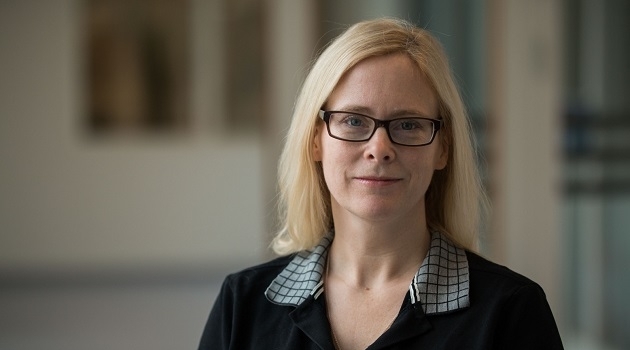Discovery paves way for possible new cancer treatment
Radiopharmaceuticals that fight cancer are on the rise and Marika Nestor is contributing to their development. An antibody from her lab offers hope for a future treatment for those affected by anaplastic thyroid cancer, a currently incurable form of cancer.
One day, Marika Nestor was standing in the lab and by chance she found that the antibody she was working on bound to a target found on the tumour cells from anaplastic thyroid cancer. This type of cancer today has no cure and patients have short survival prospects. If what she had discovered was true, it could be revolutionary for this group of patients!
Marika Nestor is Associate Professor in Medical Radiation Science at Uppsala University. Her research group at the Department of Immunology, Genetics and Pathology is working to develop new radiopharmaceuticals for different types of cancer tumours. By linking radionuclides to antibodies that bind to specific targets on tumour cells, radioactivity accumulates in the tumour and kills the tumour cells, sparing the body's other, healthy cells.
"There is a great deal of optimism and belief in radiopharmaceuticals, several have recently been approved and they provide a chance for more individualised treatment. Radioactivity can be measured in the body, and this can be used to adapt the treatment to each patient to provide an optimal effect with as little side effects as possible," says Marika Nestor.
Discovery with enormous potential
After further successful studies in the lab, Marika Nestor presented her results at a cancer conference.
"At the conference, I established contact with a researcher at a biotech company who pointed out the enormous potential of my discoveries to be able to develop a drug that can be used clinically. As a researcher, it's so easy to get caught up in academic thinking, that the end goal of one's research is a publication.”
After the conference, Marika Nestor decided to try to take her results further, and therefore contacted UU Innovation for help.
"Since my discoveries could make a big difference for a patient group that as of today has no good treatment and very short survival prospects, there was no doubt that this was something I would move forward with. At UU Innovation, I quickly got in touch with both business advisors and IP advisors who provided guidance on the way to a finished drug.”
Big steps forward with the right support
Through UU Innovation, Marika Nestor received help with funding to be able to continue working in the lab and obtain more data to show that the antibody linked to a radionuclide acts as a drug for anaplastic thyroid cancer. These results could then be used in applications to research funding organisations who provided the project with substantial grants. In parallel, Marika Nestor collaborated with SciLifeLab's Drug Discovery and Development Platform, where the antibody has been developed and optimised.
"We have now developed an excellent antibody at SciLifeLab and the next step is to find funding to achieve large-scale production. We have filed a patent application and are looking for investors, and our top priority is to make a drug available so that it can be used clinically to see that it works for the patients.”
Take care of the research results
Marika Nestor has started a company to handle these parts, and she herself feels that she is perfectly positioned today. Where she best fits into the picture was not least clear to her after she gained insight into what it means to start and run a business through UIC's business development programme.
"I really fit in at the university, as a researcher, where I can push innovations from a research perspective, but for the innovations to carry themselves in the long term, a larger team is needed that can complement the group's skills. Therefore, today we are looking for a CEO for the company who, together with us, can and wants to pursue this idea further, so that it benefits patients and society," she says.
According to Marika Nestor, the journey she has made has been an awakening.
"It is important that researchers take responsibility for taking their ideas further, and that they do not stop with an academic publication. It's not as difficult as you think, and there's a lot of support to be had from UU Innovation, in everything from what to consider when filing patent applications, to how to present your project to investors, and contact with regulatory experts and help with feasibility analyses.”
Frida Henningson Johnson

